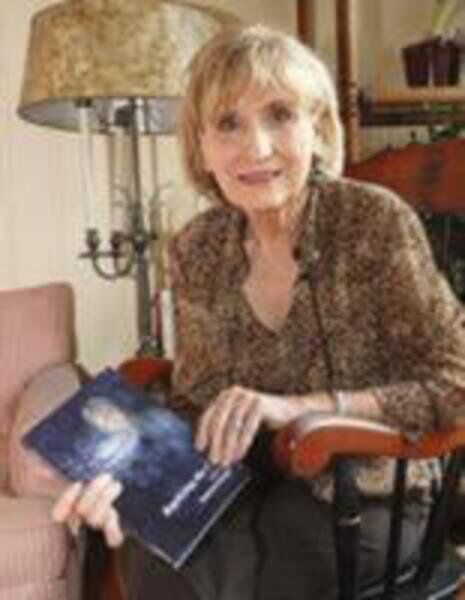GEORGE BOOK REVIEW: A Woman of No Importance
Published 1:00 pm Saturday, July 16, 2022

- Submitted photo: Roberta George
A Woman of No Importance by Sonia Purnell, author of Clementine: The Life of Mrs. Winston Churchill
One of the first things that struck me about Virginia Hall (Dindy, her family nickname), the leader of the French Resistance during World War II, was how she knew her own mind.
Coming from a wealthy family on the East Coast, her mother wanted her to follow in her footsteps and be a traditional society wife but she didn’t want to be married to a well-heeled fiancé, which turned out to be the right decision since later the man she was engaged to had three adulterous, unhappy marriages.
Also, even though women were only expected to do secretarial work, Virginia kept taking the entrance exams for the State Department in the U.S. until she finally landed a clerk’s job in the American embassy in Warsaw, Poland.
Still, no matter what job she was handed, she always made a good impression. She was vivacious and attractive, a gifted linguist and she also could code and decode telegrams, process diplomatic visas and dispatch reports back to Washington.
Later, she was transferred to Smyrna in Turkey and it was there that fate handed her the tragedy that would forge her into the strong woman she truly was. On a hunting trip, she fell, the gun slipped off her shoulder and fired a round at point-blank range into her foot. Those were the days before antibiotics, and in order to save her life, the surgeons sawed off her left leg below the knee.
In the long process of healing, the ghost of her father came to her in a vision, telling her to not give up. For the rest of her life, she would wear a prosthetic wooden leg, which weighed about eight pounds. She later dubbed it “Cuthbert” and she certainly never gave up.
This book, “A Woman of No Importance,” gives one a bird’s eye view of Hitler’s troops taking over Poland and France, and the cowardly way the bulk of humanity ignored his evil until it was almost too late. Why is it that the Nazis in their pathological hatred of Jews and people of color, seem the true trademark of the devil? (Take a lesson, America, about following a leader who has no moral compass.)
Virginia then goes back to Paris to take on the one active role that was available to her, driving an ambulance for the French 9th Artillery Regiment. No mention is made of her wooden leg and she wears a thick stocking to hide it.
Chance meetings with strangers reinforces the idea that there is no such thing as a coincidence. She meets an undercover British agent named George Bellows, who gives her a phone number and the rest is history.
In Lyon, Virginia soon makes friends with the nuns of Saint Elizabeth’s, and they become her earliest and most reliable recruits, and the nunnery one of the best safe houses for the Resistance.
The other women she finds to be just as brave and useful as the nuns are written about in the chapter called “My Tart Friends.” They are a group of women headed by Germaine Guerin, a 37-year-old “burning brunette with animal sexual magnetism,” part owner of one of Lyon’s most successful brothels.
It was Germaine’s “girls,” who took the greatest risks, spiking clients’ drinks and rifling through pockets for interesting papers to photograph while they slept.
One particular time, on the direct orders of General Patton, she is responsible for the demolition of five bridges, 16 railway lines cut, eight trains derailed and all telephone wires cut in the area, plus the killing of 80 German soldiers, while her men only suffered 12 casualties.
Believe me, this book, 316 pages of small type and 50-plus pages of notes and index, shows how one person can make a world of difference.
Throughout World War II, Virginia played a pivotal role in undermining the Nazi’s efforts and morale and saving their victims, even though there often was a man in her employ, who resented a woman having that much power. Even De Gaulle, after the war, had all mention of women in the front lines expunged from the records.
Reading of all Virginia’s exploits, I could hardly continue, afraid that she would be the next one tortured and killed, but thank goodness, finally on page 241, there were pictures that showed her after the war.
Other pictures showed the men who went to their deaths for not revealing her identity. And in the extensive research for this book, the author, Sonia Purnell, came across an honor, the Croix De Guerre, given to Virginia in France, that she was awarded but never talked about.
I’m afraid, as it often is with big organizations, in this case the CIA, Virginia’s contributions and heroism were soon forgotten. Still, many of the men who resented her at first, spent their last years trying to have her recognized. But surely, because of all the people and the country she helped save and a war she helped win, her life was well-lived, which in the end is really the best reward.
I am a fortunate member of a group called Bookfellows, which is why I read this book. Please, if you are a reader or love books, join us, call the library and leave your name, phone number and email address. We’ll get in touch.
Roberta George is a former executive director of the Annette Howell Turner Center for the Arts and founder of the Snake Nation Press.





